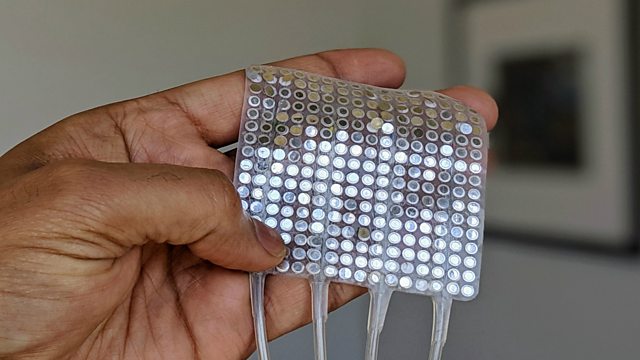
Turning brain waves into speech
Analysis of neural activity associated with talking has allowed neuroscientists to reproduce speech synthetically. And, could viruses help us fight super-bugs?
Neuroscientists have recorded the brain activity of patients while talking and used this to develop computer programmes that can simulate speech. The neural activity they monitored is associated with the muscle movements needed to talk and form words rather than the meaning of the words themselves. They say a refined version of the system should be able to generate speech for people who cannot talk.
Data collected from a long running study of plankton is proving useful for research into historic ocean plastic pollution. Records of plastic accidentally entangled in the ocean going plankton samplers now provides a snapshot of contamination dating back to the 1950s.
And, we travel to Georgia where “phages”, viruses that hunt and kill bacteria, have been used for nearly 100 years to treat illnesses ranging from a sore throat to cholera. Phages are fussy eaters – a specific phage will happily chew on one bug but ignore another. In Georgia, scientists have kept rare phages safe for decades and are constantly on the look-out for new ones.
We speak to the scientists and doctors who are pioneering phage-therapy as well as overseas patients who have travelled thousands of miles in hope of finding a cure.
(Picture: Researchers implanted electrodes similar to these in participants’ skulls to record their brain signals. Credit: UCSF)
Last on
More episodes
Broadcasts
- Sun 28 Apr 2019 14:06GMT���˿��� World Service Americas and the Caribbean
- Sun 28 Apr 2019 15:06GMT���˿��� World Service News Internet
Podcast
-
![]()
Unexpected Elements
The news you know, the science you don't

